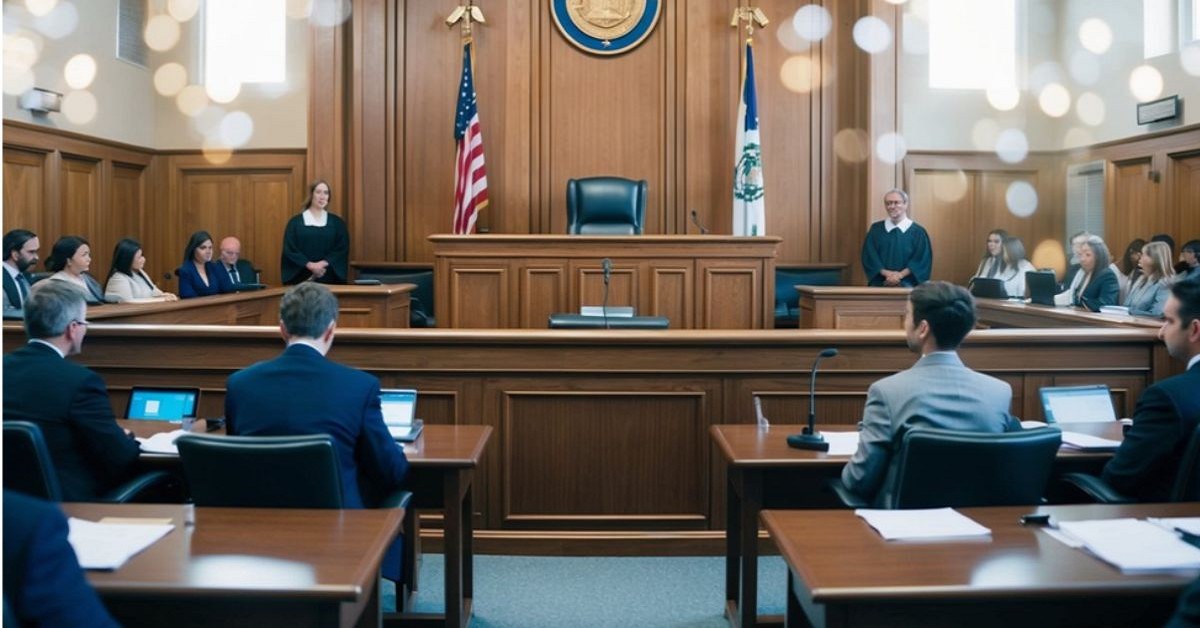In the legal world, the distinction between civil and criminal cases can often lead to confusion. Many individuals wonder if a civil case can indeed result in criminal charges. The answer is yes; certain actions that prompt civil lawsuits can also lead to criminal prosecution, depending on the evidence and nature of the conduct.

Civil cases typically involve disputes between individuals or entities where one party seeks compensation or resolution for a perceived wrong. While these cases usually settle financial matters, some scenarios involve underlying actions that violate criminal laws. For instance, if someone files a civil suit for personal injury due to reckless behavior, that same behavior may be investigated for potential criminal charges.
Understanding the interplay between civil and criminal law is crucial. It allows individuals to grasp the implications of their actions and the possible legal consequences that could arise from a seemingly straightforward civil dispute. Exploring this topic can shed light on the intricacies of the law and its impact on personal and legal accountability.
Understanding Civil Cases
Civil cases address disputes between individuals, organizations, or entities, typically involving claims for damages or specific performance. These cases are fundamentally different from criminal cases, which deal with offenses against the state. The nuances of civil law include unique processes and potential outcomes that are essential to recognize.
Differences Between Civil and Criminal Law
Civil law focuses on resolving disputes and compensating victims. It operates under a "preponderance of evidence" standard, meaning the majority of evidence must favor one party. Common civil cases involve contracts, property, and torts.
In contrast, criminal law is punitive, seeking to punish offenders for societal harm. Criminal cases require proof "beyond a reasonable doubt," a stricter standard. Penalties often include incarceration or fines. Understanding these differences highlights the distinct objectives and procedures governing each type of case.
Potential Overlap of Civil and Criminal Cases
There can be instances where civil and criminal cases intersect. For example, an act like fraud may lead to a civil lawsuit for damages while also resulting in criminal charges. In such situations, the outcomes of each case can impact the other.
A skillful civil litigation attorney can navigate these complexities. They may argue civil cases while also considering the implications of concurrent criminal investigations. The dual nature of these cases requires careful legal strategy to safeguard clients' rights and address all potential liabilities.
When Civil Cases Lead to Criminal Charges
Civil cases can sometimes uncover evidence or trigger events that lead to criminal charges. The relationship between civil litigation and criminal law is complex, often influenced by the nature of the dispute and findings during the civil process.
Examples of Civil Disputes Leading to Criminal Cases
Certain civil disputes may involve actions that are also criminal offenses. For instance, a civil case regarding fraud can lead to a criminal investigation if evidence of wrongdoing, such as embezzlement or misrepresentation, is presented in court.
Another example is domestic violence cases. A civil case for divorce or custody might reveal evidence that prompts law enforcement to pursue criminal charges against one party. In cases of personal injury, if a defendant's actions are found to be grossly negligent or intentional, this can also lead to criminal prosecutions.
Key Case Types:
- Fraud Cases: Civil suits revealing fraudulent activities.
- Assault/Battery: Domestic disputes that uncover criminal behaviors.
- Negligence: Severe negligence resulting in injury or death may prompt criminal charges against the responsible party.
Legal Mechanisms and Protections
The legal system provides specific mechanisms for transitioning from civil to criminal cases. Evidence uncovered during civil litigation can be referred to law enforcement, who may then initiate a criminal investigation.
Attorneys skilled in civil litigation often play a crucial role in this process. They may identify pertinent evidence that not only supports the civil claim but also suggests potential criminal activity.
Additionally, parties involved in civil disputes should be aware of their rights and protections.
Key protections include:
- Fifth Amendment Rights: Protects individuals from self-incrimination during civil proceedings.
- Discovery Rules: Limitations on what evidence can be shared in civil cases to avoid impacting potential criminal cases.
Navigating these waters requires expertise to ensure proper adherence to legal standards.
Join LAWyersClubIndia's network for daily News Updates, Judgment Summaries, Articles, Forum Threads, Online Law Courses, and MUCH MORE!!"
Tags :Others











